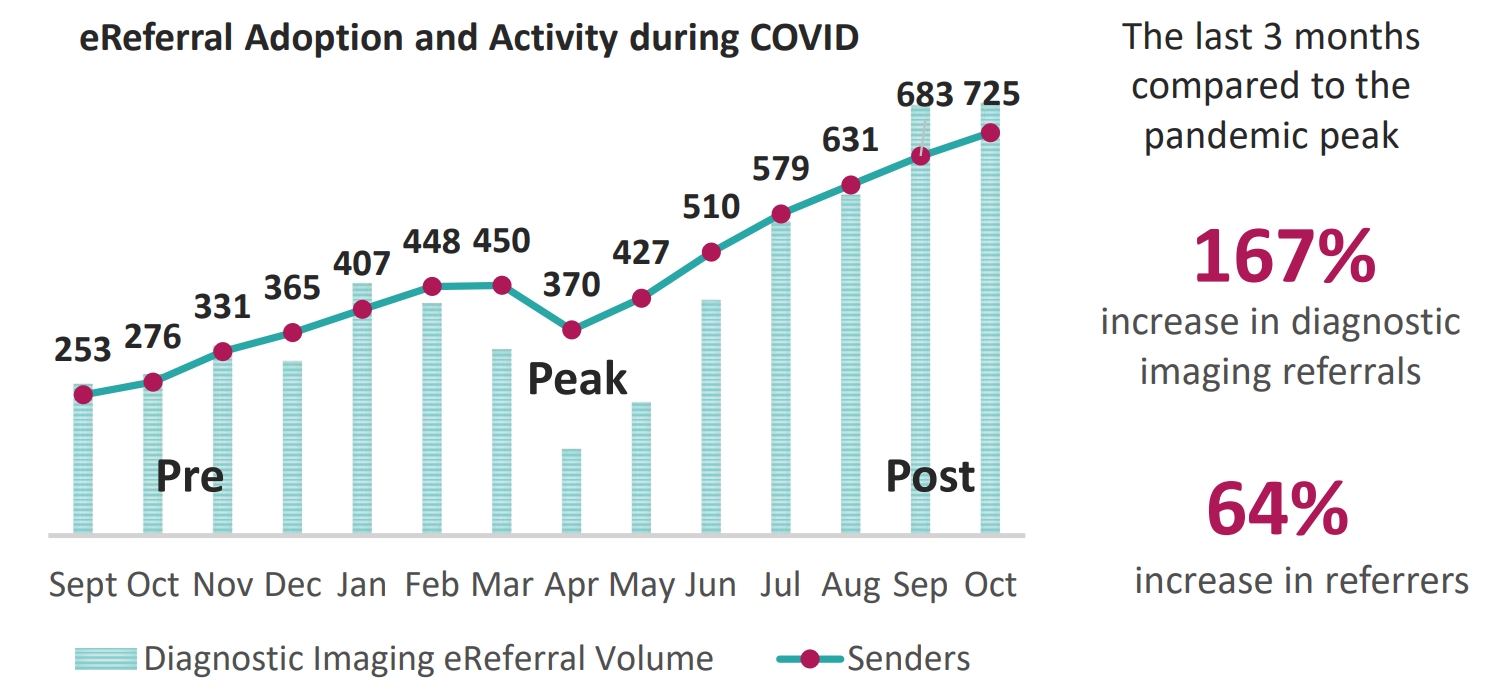eReferral Adoption Strategies throughout the COVID-19 Pandemic
Change Management Strategies during the Pandemic:
- Remote training, targeted live webinars and myth-busting engagement sessions
- Maintaining open lines of remote communication and regular check-ins
- Newsletters to keep users informed, highlighting tips and tricks
- Promoting and leveraging eReferral technology and enhancements
Key takeaways
Adapting change management tactics and clinical engagement strategies has resulted in increased adoption of electronic referral, supporting a quick rebound post first wave of the COVID-19 pandemic.

Having a one-on-one demo and sending links to instructions with attachments so that I can practice on my own; extending an ongoing offer to support as needed down the road, providing direct contact information, and welcoming callbacks numerous times if there were questions, was helpful!
Nurse Practitioner
Post-Training Survey OH-West
Interested in learning more?
Interested in partnering with us or learning more about
what we can offer you? Please reach out here.
Get the latest resources and insights
-

eReferral email notifications enhance patient experience
Patient email notifications sent by the eReferral solution result in patients feeling more informed and…
-

Supporting clinical best practices with an electronic referral system
Radiography is an appropriate cost-effective screening test for arthritis in older patients.¹ Evidence shows that…
-

eReferral and North East Assessment Centre central intake musculoskeletal process
In Canada, Orthopedic surgeons are considered the highest consulted specialists1 with more than 900,000 referred…
-

Virtual Visits in Primary Care: A case study on the patient experience
According to the 2017-2018 Health Care Experience Survey, although ninety-four percent (94%) of Ontarians have…